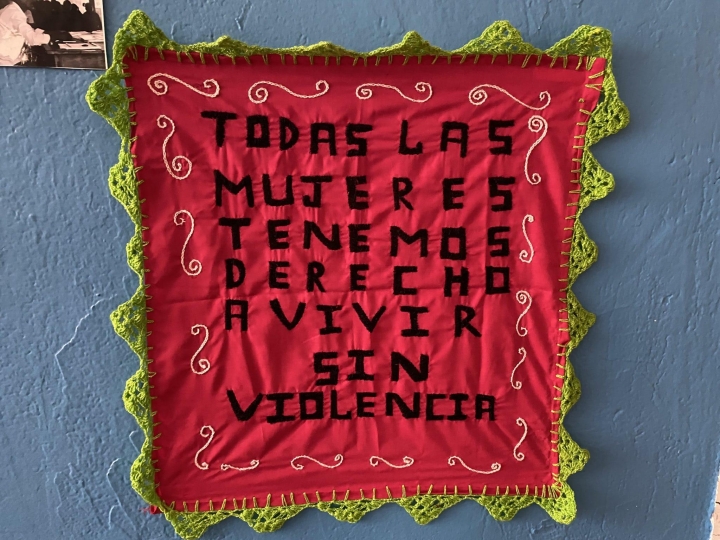For 49 years, women have united on International Women's Day, 8 March, for equality, justice, peace and development. On this path, international bodies such as the United Nations (UN) have accompanied this commemoration since 1975, recognising that "gender equality remains the greatest human rights challenge".
Investing in women means accelerating progress
This year the UN proposes #InvestInWomen to accelerate progress and create inclusive societies. According to figures published on the UN website, 75% of countries will maintain cuts in public spending by 2025 due to conflict and rising fuel and food prices. Austerity impacts negatively on women by reducing public spending on essential public services, care policies and social protection.
The underinvestment in women is also reflected in the low support for women-led organisations fighting for human rights, which are estimated to have almost no resources to advocate and operate, receiving only 0.13% of the total official development assistance for their work.
Women Human Rights Defenders at risk in Colombia and Mexico
The work of women human rights defenders is also hampered by the limited security guarantees and the lethal risk they face while carrying out their work. Colombia and Mexico are two of the most dangerous countries in the world for human rights defenders, and the number of women human rights defenders killed, abused and threatened is increasing annually.
In Colombia, a total of 181 leaders and human rights defenders were killed in 2023. According to data from the Ombudsman's Office of Colombia, 21 of the total were women. In 2022, they were 14. Furthermore, in 2023, 12,267 women human rights defenders requested protection measures from the National Protection Unit due to threats against them.
In Mexico, the Mesoamerican Initiative of Women Human Rights Defenders (IM-Defensoras) documented, in 2022, 519 attacks against 91 women defenders and 5 organisations that defend women's right to a life free of violence. In addition, 23 cases of sexual abuse (involving non-consensual or coercive touching and nudity during the course of their work) were recorded.
Of these cases of violence, the situation faced by indigenous and Afro-descendant women leaders and those who carry out and accompany the search for enforced disappearances is particularly worrying. According to the latest report by Human Rights Watch, Afro-descendant and indigenous women defenders have been among the most affected in Colombia, as they have suffered death threats and constant acts of violence. In Mexico, women human rights defenders searching for their loved ones who have been forcibly disappeared face intimidation, attacks and even violent deaths.
International Women's Day: 6 to 8 March

This needs to be said loudly: The work of women defenders is essential to promote human rights and at the Norwegian Human Rights Fund we are committed to this approach. That is why in 2023 we supported and believed in the work 88 women led organisations globally.
For this years' International Women's Day, we highlight the work of women human rights defenders in Mexico and Colombia, especially those who belong to indigenous and Afro-descendant communities and those who search for people reported missing, as key actors in the construction of peace, the defence of territory and the environment.
The promotion and strengthening of women’s rights in the world cannot be achieved without the dedication and effort that these women human rights defenders put out every day – despite the risks and challenges they face. That is why we invite you to explore the following interviews to learn more about their work and get to know their stories. Please also follow and share our campaign on social media.
COLOMBIA
In Colombia those searching for more than 230,000 people reported missing are women (95%). This is the case of Yanette Bautista who became a human rights defender when her sister was disappeared. Yanette then founded our grantee partner organisation, the Fundación Nydia Erika Bautista, to promote the defence of the victims’ human rights, including women searchers.
Colombia is one of the most violent countries in the world for defending human rights, and Afro-descendant women are increasingly at risk. Aura Caicedo, through her organisation, the Ambulua Women's Training and Empowerment Centre, works for women who risk their lives to defend their communities in Buenaventura - one of the most dangerous cities in Colombia.
MEXICO
Judith Gonzáles talks about the obstacles and challenges for women defenders in her region. Alianza Sierra Madre A.C. is an organisation that supports indigenous communities of the Sierra Tarahumara in the exercise of their human and collective rights, the conservation of natural resources and the well-being of communities.

